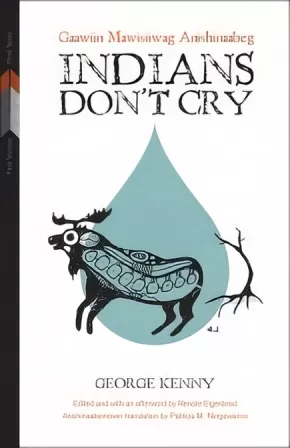George Kenny
George Kenny is from the Lac Seul First Nations in northwestern Ontario. He is currently completing a Masters degree in Environmental Studies so that he can continue to write about the culture of Anishinaabe people of Lac Seul and the English River, the source of his creativity.
Books (1)
Synopsis:
George Kenny is an Anishinaabe poet and playwright who learned traditional ways from his parents before being sent to residential school in 1958. When Kenny published his first book, 1977’s Indians Don’t Cry, he joined the ranks of Indigenous writers such as Maria Campbell, Basil Johnston, and Rita Joe whose work melded art and political action. Hailed as a landmark in the history of Indigenous literature in Canada, this new edition is expected to inspire a new generation of Anishinaabe writers with poems and stories that depict the challenges of Indigenous people confronting and finding ways to live within urban settler society.
Educator & Series Information
Indians Don’t Cry: Gaawin Mawisiiwag Anishinaabeg is the second book in the First Voices, First Texts series, which publishes lost or underappreciated texts by Indigenous artists. This new bilingual edition includes a translation of Kenny’s poems and stories into Anishinaabemowin by Patricia M. Ningewance and an afterword by literary scholar Renate Eigenbrod.
Although most of the books in this series are non-fiction, this one is listed as fiction.
Additional Information
190 pages | 5.50" x 8.50"







